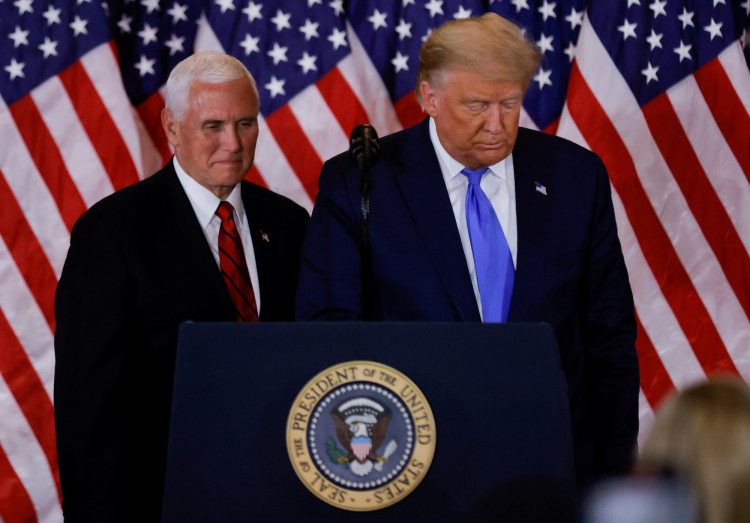Mike Pence and Donald Trump are publicly clashing over Ukraine's fate and the implications for NATO, signaling new friction between the former running mates over U.S. foreign policy. Pence, who served as vice president under Trump, took issue with the president's suggestion that Ukraine "may be Russian someday." The exchange has prompted fresh scrutiny of how America might respond if Russia's aggression expands beyond Ukraine, potentially touching off a broader conflict on NATO's doorstep.
In a post on social platform X, highlighted by Mediaite, Pence said: "Mr. President, Ukraine will only 'be Russian someday' if the United States abandons them to [Russian President Vladimir] Putin's brutal invasion. As you just said, 'When America is Strong the World is at Peace.' Stand Firm." He went on to warn, "If Ukraine falls, it will only be a matter of time until Russia invades a NATO ally our troops will be required to defend." Pence's comments came shortly after Trump's interview on Fox News, during which the president reiterated his intent to bring a swift end to the conflict.
Trump's remarks have been scrutinized within the context of his earlier vows to curtail U.S. support for NATO countries that do not meet certain defense funding thresholds. He told supporters at a rally in North Carolina last year that he would "encourage" Russia to "do whatever the hell they want" to nations failing to meet his expenditure goals, raising concern among European allies who depend on NATO's collective security. Analysts say any sign of U.S. reluctance to honor Article 5 of the NATO treaty could embolden Russian territorial ambitions.
According to the alliance's charter, codified in Article 5, "The Parties agree that an armed attack against one or more of them...shall be considered an attack against them all and consequently they agree that...they will assist the Party or Parties so attacked...including the use of armed force, to restore and maintain the security of the North Atlantic area." Pence's statement invoked this principle to argue that America's continued support of Ukraine is essential to maintain stability in Europe.
Administration officials note that Treasury Secretary Scott Bessent and Vice President Vance are scheduled to meet Ukrainian President Volodymyr Zelensky, with Vance expected to arrive in Ukraine on Friday. Their planned discussions may address the state of U.S. and allied military support, as well as President Trump's repeated pledges to achieve peace talks. "I am sending Secretary of the Treasury Scott Bessent to Ukraine to meet President Zelensky," Trump posted Tuesday on Truth Social, adding: "This War MUST and WILL END SOON - Too much Death and Destruction."
Critics, however, argue that Trump's statements could undercut diplomatic missions. Trump's posture on NATO and other international coalitions has often been marked by demands for greater financial commitment from allies. Some members of Congress have also questioned ongoing aid to Ukraine, suggesting it might be scaled back or halted, thereby compounding anxieties in Europe.
- Key Ukraine Conflict Figures
- Ongoing hostilities since Russia's invasion in 2022
- Billions of dollars in U.S. and global military aid
- Heightened risk to neighboring NATO member countries
Trump's stance also intersects with his broader claims regarding the conflict: He has insisted that Russia would not have invaded Ukraine had he still been in the Oval Office and has pledged to end the war on his "Day 1" in power. His recent comment that "They may be Russian someday, or they may not be Russian someday," was quoted by CBS News, which also cited Kremlin spokesperson Dmitry Peskov backing that sentiment.
Foreign policy experts say the Baltic states-Estonia, Latvia, and Lithuania-are particularly apprehensive about any wavering of U.S. commitment to NATO. Those countries have moved away from Russian energy, joining the European Union's power grid and reducing dependence on Moscow. For them, the U.S. security guarantee stands as a bulwark against any further Russian aggression.






